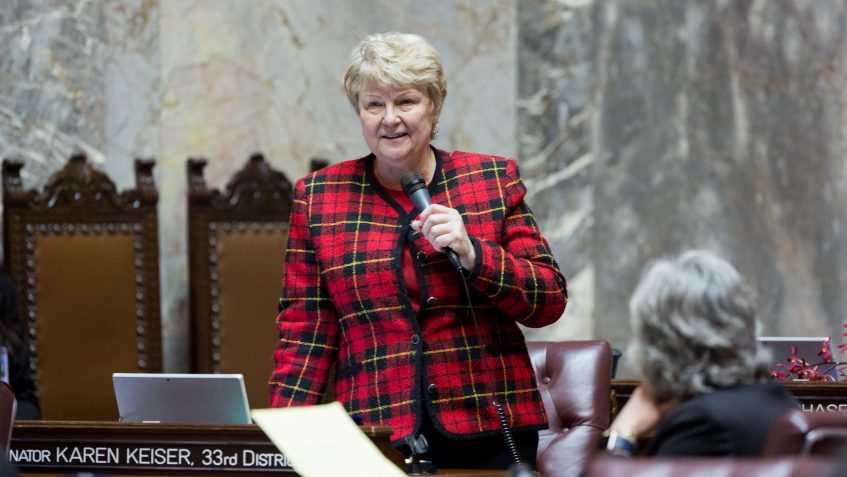By Karen Keiser and Mike Sells
Special to The Times
Questions about why wages remained flat during the 10-year economic recovery since the Great Recession have been asked over and over without clear answers. Well, here’s one reason: Millions of salaried workers are not getting overtime pay.
One of the greatest victories of the labor movement was the right to a 40-hour workweek, enshrined in the Fair Labor Standards Act of 1938. That right recognizes that all workers need time for rest and recovery — but, if they’re going to be required to work overtime, they should be fairly compensated.
Today, it’s too easy to make employees exempt from overtime wages simply by calling them “managers” and paying them a few dollars more than the federal overtime threshold of $23,660 a year to comply with current law. That threshold was set in 2004 and hasn’t been raised since.
Although a few one-time adjustments have been made, the exemption thresholds were not tied to inflation, and protections for salaried workers have eroded over time. In the 1970s, 63 percent of salaried workers were covered by overtime laws. Today, that number is less than 7 percent.
With efforts to make progress stalled at the federal level, Washington state is now taking the lead. A new rule proposed by the state Department of Labor & Industries would increase the salary threshold and expand overtime protections to cover a quarter million more Washingtonians. After another three-month period of feedback, L&I will prepare a final rule.
Washington’s salaried workers urgently need this proposed rule because the status quo is woefully inadequate.
During comment on this rule, Washingtonians came forward with stories of how the lack of overtime protections affects them — stories of workers being required to work 80-90 hours per week during the holiday season without additional pay; of postdoctoral researchers who qualify for low-income housing even while working late nights and weekends in their labs; of construction “managers” working 60 hours a week without overtime pay, while doing tasks previously performed by hourly employees who qualified for overtime.
Our current Washington state rule is even weaker than the federal standard and would only protect workers who earn less than $13,000 per year.
In addition, our state’s job-duty descriptions mean thousands of employees are exempt from overtime protections by being misclassified as management even though they have no actual management authority.
These rules no longer serve the purpose for which they were made. More and more workers are working more and more hours, but not getting paid for it. It’s one of the hidden reasons why wage rates have been so stubbornly low despite our economic recovery.
In 2014, the U.S. Department of Labor proposed extending overtime protections to workers earning up to $47,000 and adjusting for inflation. This would have guaranteed protection to 4.2 million more workers across the country. But President Donald Trump killed that rule. A new federal proposal for a lower threshold of $35,000 has yet to be adopted.
Given the uncertainty and lack of adequate progress at the federal level, it is important we set clear, fair standards for Washingtonians at the state level.
The proposed state rule is the result of extensive data collection and public feedback. The state Department of Labor & Industries has clear statutory authority for this rule-making, and has conducted a thorough and transparent 18-month process.
In response to feedback from the business community, the new rule provides a lengthy seven-year phase-in period for all businesses and allows small businesses to start the phase-in at a lower threshold. Starting next summer, companies with 50 or fewer employees would have to pay an exempt employee at least $35,000 per year. Larger employers would have to pay about $49,000 per year. Those thresholds would increase yearly based on a formula tied to the state’s minimum wage, rising to 2.5 times minimum wage by 2026.
We know businesses are better off when their workers are compensated fairly, which reduces turnover. And local economies are stronger when more money goes into the pockets of workers who will spend it close to home.
Time is precious. Recognizing the value of workers’ time is good for workers and their families. It’s also good for employers and our communities.
Karen Keiser chairs the Washington State Senate Labor & Commerce Committee. A Democrat, she represents the 33rd Legislative District including parts of Burien, Normandy Park, SeaTac, Kent and Des Moines.
Mike Sells chairs the House Labor and Workplace Standards Committee. A Democrat, he represents the 38th Legislative District, which includes parts of Everett and Marysville.





